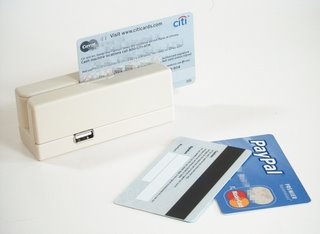For instance, take the "Road Home Program", which has paid a company called ICF International over $60 million to issue $4 million in checks. The program is intended to assist victims in getting back into "livable housing," and will manage the distribution of $7.5 billion in federal relief money.
ICF International is a "consulting firm" based in Fairfax, Virginia. According to Wikipeida, it's services have been used by the U.S. Environmental Protection Agency, the Department of Homeland Security, the Department of Energy, the United States Postal Service, and Housing and Urban Development.
The program has it's own website, which states:
The Road Home program was created by Governor Blanco, the Louisiana Recovery Authority, and the Office of Community Development. The program is funded by the U.S. Department of Housing and Urban Development.There has been a lot of criticism that ICF has been slow to fill positions for the project. Interestingly enough, there are a lot of positions (still not filled) advertised on their website.
The Times Picayune did an excellent assessment of the lack of program staffing, here.
The "Road Home" website also states that it dispels a lot of myths about the program, but it appears not everyone is "buying their version" of what is going on.
Because of the allegations of "mismanagement," the Louisiana House and Senate have passed two resolutions to terminate ICF's $756 million contract. They are also calling for an investigation into "possible conflicts of interest."
The Times Picayune reported:
The House and Senate, in separate unanimous votes, also passed House Concurrent Resolution 34 by Rep. Cedric Richmond, D-New Orleans, ordering a special legislative panel of New Orleans lawmakers and the Louisiana Recovery Authority -- the state agency overseeing recovery operation in the state -- to investigate ICF's handling of the contract. It was amended by Rep. Jim Tucker, R-Algiers, to also urge the federal Securities and Exchange Commission to probe ICF's public stock offering, shortly after winning the state contract, for possible conflicts of interest.
The Times Picayune article, here.
Sue Sturgis, who writes for Facing South, has also written some interesting commentary on the program.
Ms. Sturgis points out that ICF initially was involved in a contract to help the state decide how to spend federal grant money, which conceptualized the "Road Home Program." During this time frame, ICF decided to seek the "lucrative program administration project."
When the Louisiana Board of Ethics raised concerns that this contract might be perceived as giving ICF an unfair advantage in getting the larger contract, ICF ended the initial one. The payout for the first contract was $900,000, while the Road Home Program could pay ICF up to $756 million.
She also brings out other concerns the Board had with some of the banking relationships that were being proposed by ICF to administer the funds.
Facing South article, here.
Whether conflicts of interest exist remains to be seen. What can be clearly seen is that taxpayer money intended to help Katrina victims isn't getting to those who need it very quickly.
Red tape and excuses aren't going to be acceptable when there are a lot of people still living in "not very nice" conditions.
And until this matter is rectified, there are going to be "voices" calling for some "accountability."
Some of these voices are getting pretty loud.
This month, federal investigators plan to release audit results on contracts given to "so called" politically connected firms in the Katrina crisis. Speculation has it that these audits are going to reveal additional concerns about how money was squandered in the Katrina aftermath.



